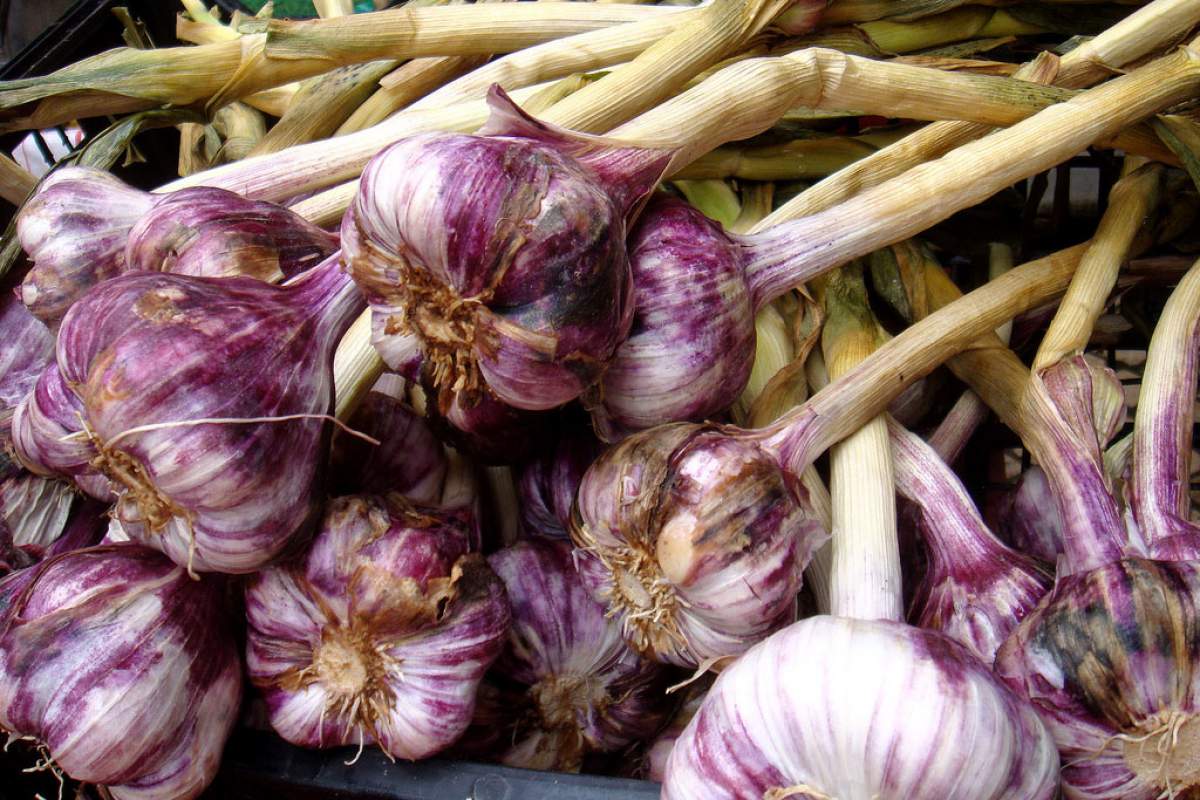
A whole head of raw garlic, with its white, papery skin intact, doesn't have a strong smell. Peel and chop a few cloves, however, and the odor of garlic takes over the room. But if you roasted the head of garlic, instead of chopping it, the smell and flavor would be much more delicate. Why does the potency of garlic vary when garlic appears in different guises?
Garlic Power
If you're a garlic lover seeking to make the most of garlic's pungencyor someone who'd just as soon avoid the stuffthese two basic guidelines might help: chopping garlic heightens the flavor and smell, while cooking mellows it. Here's why.
When you chop garlic, you're cutting through the tiny cells that make up each clove. Inside the cells, there's a sulfur compound called alliin, which by itself has no smell whatsoever. But in the minuscule spaces between the cells there's another substance, an enzyme called alliinase.
When your chopping knife breaks the cell walls and brings alliin into contact with alliinase, a series of chemical reactions produces garlic's stinky, flavorful compounds. The more finely you chop, the more alliin reacts with alliinaseand the more potent the garlic.
Cooking Garlic
Cooking mellows garlic because heat deactivates alliinase so that it doesn't react with alliin to produce those odoriferous, flavorful compounds. That's why a roasted, whole head of garlic has such a delicate, delectable flavorwhile raw, chopped garlic is the strongest and stinkiest of all!









